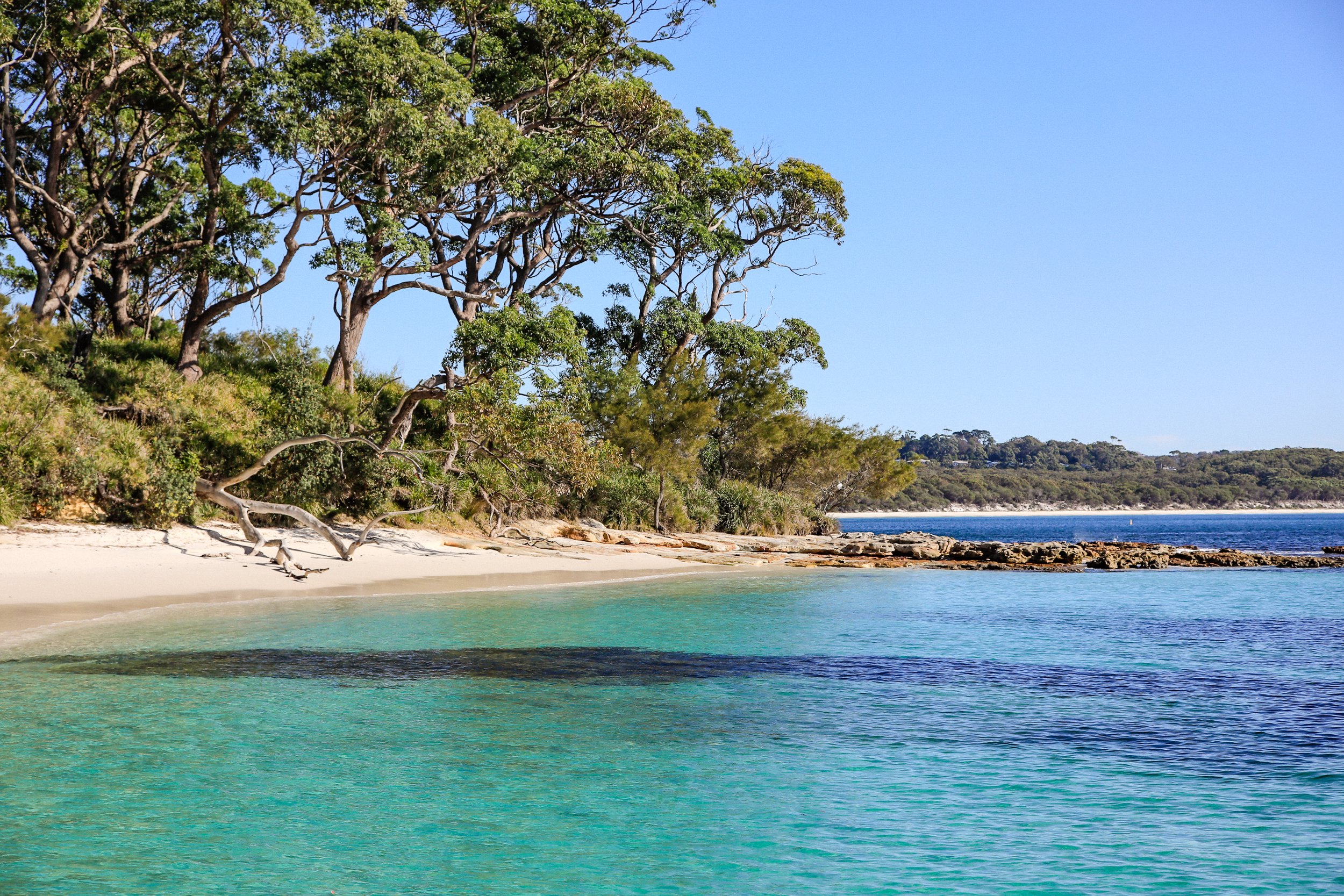Sustainability is at the core of
Oyster Catcher Huskisson.
The environmental impact of travel is becoming harder to ignore. Recent studies show tourism is responsible for almost 9% of global greenhouse-gas emissions (University of Queensland, 2024), with Australia sitting among the top 20 countries contributing to tourism-related carbon output (Sun et al., 2024). At Oyster Catcher Huskisson, we’re committed to doing our part - t’s about making small conscious decisions that ensure we leave everything in a better way than we found it.
We invite you to join us in choosing a stay that makes a genuine difference…..
And it starts with good design.
This architecturally-designed beach house features reverse brick veneer external walls, which creates a thermal mass and lowers the average energy demands for heating and cooling. Clerestory windows in the entry create not only a huge visual impact and allow light to flood the space, but also act as a thermal chimney to ensure that the house is always at a consistent, comfortable temperature.
This sustainable design blueprint is complemented by how the house is equipped and operated. For starters, hot water is heated by the sun and rainwater is captured for use in the gardens, solar panels capture the suns energy to power the house.
This Jervis Bay holiday house is set up for each guest before arrival, to optimise the internal temperature of the home based on the day’s weather. With the doors and louvres opened up and the fans on, even the most avid air-con users are surprised by how cool the shack stays thanks to this clever design. (Though of course, you always have the option to switch on the AC if you choose.)
You’ll find a reusable tote bag in your welcome kit to use at the beach and for shopping trips during your stay. You won’t find any single-use plastics in our bathrooms. Our coffee pods are compostable, as is the stretch wrap in the kitchen from the fabulous Great Wrap. Oh and the welcome wine, always local.
These small, conscious decisions help to make a large overall impact when it comes to balancing the carbon equation. You can strengthen these efforts by using water consciously during your stay, harnessing the bountiful sunshine to dry clothes and towels, using reef-safe sunscreen, and shopping locally during your time here.
The combination of design and operations means that every month Oyster Catcher generates more energy than it uses and puts that back on the grid.
Our Progress
Between 2024 and 2025, we together with our guests, reduced our average electricity use by 27% and water use by 41%, while occupancy grew by 9%. This is proof that sustainability and guest comfort can thrive together.
Altogether, these changes helped us avoid around 1.47 tonnes of CO₂, roughly the same as:
Driving over 6,000 kilometres in an average petrol car- about the distance from Huskisson to Darwin and back
We have optimised our website via the online website carbon calculator, Stridea.com from O.54grams CO₂ per page view to O.22grams CO₂ per page view. This saving is roughly the same as:
Boiling a full kettle around 45 times, or
Avoiding about 20 single-use plastic bags
We installed the Electric Vehicle charger in March 2024, and since then usage has grown by 35% year-on-year, showing a clear shift toward cleaner travel choices among our guests. This mirrors the broader trend across Australia, where electric and plug-in hybrid vehicles now account for more than 10% of all new car sales (Federal Chamber of Automotive Industries, 2024).
At the end of 2025, we decided that we need to formally benchmark ourselves and decided to do the Strive for Sustainability scorecard. Holding ourselves accountable, we were proud of our result of 85% and were lucky to have our work featured on the Ecco Tourism Australia website. We also recognize we have work to do and cannot wait to share this with you in 2026.
We’re proud that these savings come from real reductions and behavior change, not offsets. Because while carbon offsetting has a role to play, avoiding emissions in the first place is always better. It’s tangible, lasting progress that keeps our coastal community cleaner, healthier, and more resilient.
It all adds up to mean you can sleep easy in low-impact luxury.
References
Sun, Y-Y, Faturay, F, Lenzen, M, Gössling, S & Higham, J 2024, ‘Drivers of global tourism carbon emissions’, Nature Communications, vol. 15, no. 54582, //www.nature.com/articles/s41467-024-54582-7 viewed 13/11/2025
Federal Chamber of Automotive Industries (2024) VFACTS: New Vehicle Sales Data 2024. FCAI. Available at: https://www.fcai.com.au viewed 13/11/2025
University of Queensland 2024, Tourism leads the pack in growing carbon emissions, UQ News, 11 December .https://news.uq.edu.au/article/2024/12/tourism-leads-pack-growing-carbon-emissions viewed 13/11/2025




